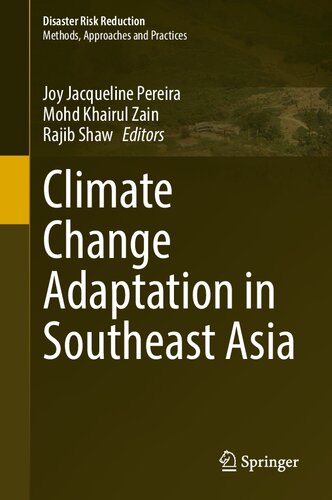

Most ebook files are in PDF format, so you can easily read them using various software such as Foxit Reader or directly on the Google Chrome browser.
Some ebook files are released by publishers in other formats such as .awz, .mobi, .epub, .fb2, etc. You may need to install specific software to read these formats on mobile/PC, such as Calibre.
Please read the tutorial at this link: https://ebookbell.com/faq
We offer FREE conversion to the popular formats you request; however, this may take some time. Therefore, right after payment, please email us, and we will try to provide the service as quickly as possible.
For some exceptional file formats or broken links (if any), please refrain from opening any disputes. Instead, email us first, and we will try to assist within a maximum of 6 hours.
EbookBell Team

5.0
20 reviewsThis book highlights the current issues, challenges, and priorities for climate change adaptation in the ten member states of the Association of Southeast Asian Nations (ASEAN). The status of each country was prepared by a consortium of researchers in consultation with National Focal Points of the ASEAN Working Group on Climate Change (AWGCC). National documents on adaptation actions, including local scenario and priorities, were reviewed where available and supplemented with an assessment of scientific publications to identify vulnerable ecosystems and regions. Adaptation needs and priorities were determined through stakeholder consultation in the respective countries. This allows for local-level perspectives to be captured and brought to the attention of policy and decision-makers at the national and regional levels. An important lesson from this exercise is that universities and research institutions at the national level have a critical role to play in bridging the gap between science and policy in climate change adaptation. These institutions also have the capacity to continuously facilitate transfer of the best available science for advancing climate change adaptation at the local level.